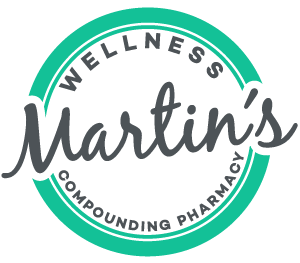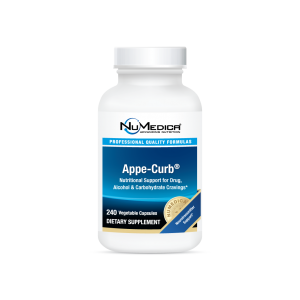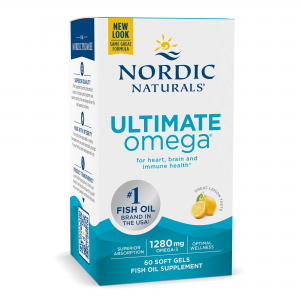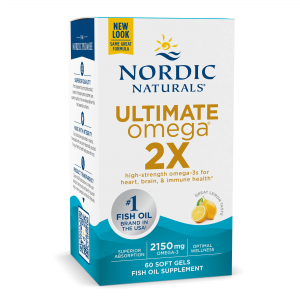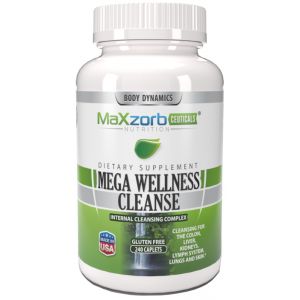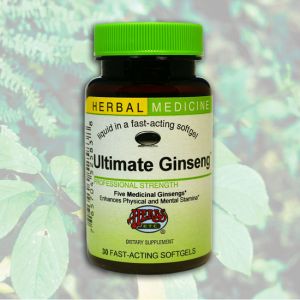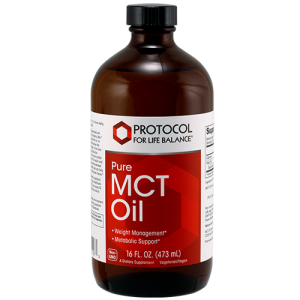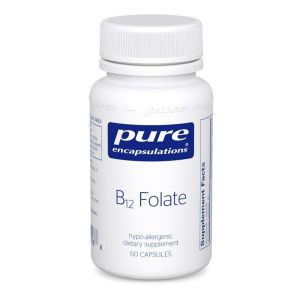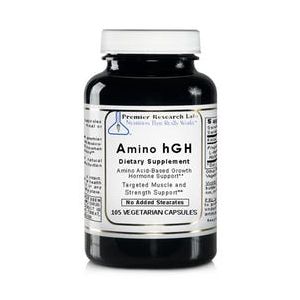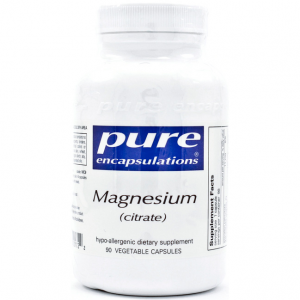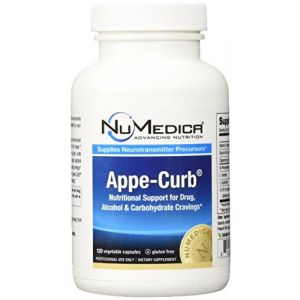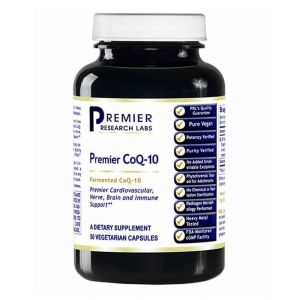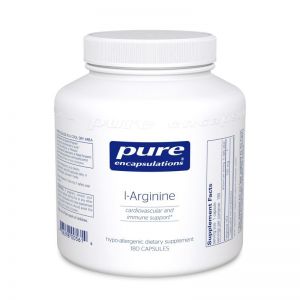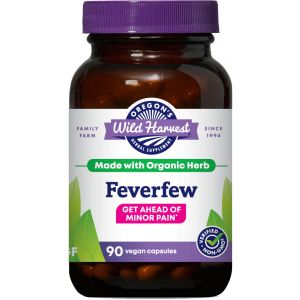Dietary Supplements & Wellness: A Comprehensive Guide

The dietary supplement industry in the US is worth billions and steadily growing, thanks to factors like our country’s increasing aging population, continuing interest in preventative healthcare, and more. However, there is also a lot of confusion about exactly what they are and how they contribute to health and wellness.
In this Comprehensive Guide to dietary supplements and wellness, we delve into the world of dietary supplements, shedding light on what they are, how they work, and the benefits they can offer for specific health goals. Whether you're looking to enhance your overall health, support athletic training goals, manage weight loss effectively, or seek relief from migraines, we've got you covered as we explore what you need to know about dietary supplements, including valuable information about the topics below.
- • What Are Dietary Supplements?
- • What Do Dietary Supplements Do?
- • Benefits of Dietary Supplements
- • List of Dietary Supplements
- • Dietary Supplement for Weight Loss
- • Migraine Dietary Supplement
What Are Dietary Supplements?
As an industry worth billions, the dietary supplement market is saturated with product marketing promises, which can create confusion and uncertainty. So let’s start this guide with the basics, i.e., what is a dietary supplement?
The term “dietary supplement” is a catch-all term for products intended to supplement or enhance one’s diet with nutrients that may be missing or insufficient in a person's regular food intake. Dietary supplements can include vitamins (i.e., multivitamins or individual vitamins like vitamin D and biotin), minerals (i.e., calcium, magnesium, and iron), amino acids (i.e., tryptophan and glutamine), herbal extracts (i.e., ginseng and echinacea) or enzymes (i.e., bromelain and cellulase), and various other substances. Dietary supplements are available in various forms, like pills, capsules, powders, liquids, and even gummies.
What Do Dietary Supplements Do?
Now that we’ve defined dietary supplements, let’s discuss their purpose. How do they support wellness goals? Dietary supplements aim to provide additional support for overall health, filling in nutritional gaps and supporting specific areas like vitamin deficiencies, immune function, bone health, or energy levels. While they can be beneficial when used for these purposes, it's important to remember that they should not be a substitute for a balanced diet (our primary source of nutrients) and a healthy lifestyle.
It’s also important to remember that dietary supplements are not a one-size-fits-all solution for maintaining or improving health. Every individual has unique health needs, depending on factors like age, gender, health condition, lifestyle, and diet. What works for one person may not be suitable for another. Therefore, it’s essential to tailor supplement choices to match the body’s requirements, like addressing specific deficiencies, to optimize overall well-being.


Benefits of Dietary Supplements
Dietary supplements can offer a multitude of benefits, both for general wellness and to support specific health goals. A well-rounded diet and exercise routine provides a solid foundation for supplement decisions, as individual dietary and lifestyle choices can influence the need for specific nutrients or the suitability of certain supplements. Consulting with a healthcare professional or wellness practitioner ensures personalized guidance, helping individuals make informed choices that align with their health goals and optimize their overall well-being.
General Wellness Benefits
In today’s busy world, it can be challenging to maintain a well-balanced diet every day to get all the essential vitamins, minerals, and nutrients needed for optimal health. Therefore, supplements can help fill these nutritional gaps, ensuring you get the necessary nutrients for overall well-being. Some general wellness benefits of dietary supplements that support dietary gaps include boosting energy levels, supporting immune function, and promoting healthy skin, hair, and nails.
Benefits for Specific Health Goals
Dietary supplements can also benefit specific health goals, providing targeted support and helping individuals work towards achieving their objectives. For instance, athletes often use protein supplements or amino acid complexes to improve their athletic performance, rebuild muscle after exercise, and increase endurance. Also, some vitamins become harder to absorb as the body ages, so supplements can help provide what is lacking. And finally, supplements can be advantageous for specific health goals like weight loss and migraine symptom relief.
However, despite these benefits, there are some risks associated with dietary supplements to consider. Why is the consumption of dietary supplements considered risky? There are some considerations to take before beginning a new dietary supplement.
- • Some supplements contain ingredients that can have strong effects on the body.
- • Some supplements can interact with medications.
- • Some supplements can also interfere with lab tests or have dangerous effects during surgery.


List of Dietary Supplements
There are countless dietary supplement varieties and blends available today to support optimum health or cater to various health needs. Overall, these supplements fall into three main categories: essential vitamins and minerals, herbal and botanical supplements, and sports nutrition supplements.
Essential Vitamins and Minerals
Essential vitamins and minerals play crucial roles in various bodily functions and are important for maintaining overall health and well-being. While a balanced diet should ideally provide these nutrients, some individuals may have specific dietary limitations, medical conditions, lifestyle factors, and more that require supplementation to support deficiencies.
Following are the essential vitamins available in supplement form: Vitamin A, Vitamin B1 (Thiamine), Vitamin B2 (Riboflavin), Vitamin B3 (Niacin), Vitamin B5 (Pantothenic Acid), Vitamin B6 (Pyridoxine), Vitamin B7 (Biotin), Vitamin B9 (Folate or Folic Acid), Vitamin B12 (Cobalamin), Vitamin C (Ascorbic Acid), Vitamin D, Vitamin E, and Vitamin K.
As for minerals, the following are essential to overall health and available as dietary supplements: Calcium, Iron, Magnesium, Zinc, Copper, Manganese, Selenium, Chromium,
Potassium, Phosphorus, Iodine, and Molybdenum.
Herbal and Botanical Supplements
Herbal and botanical supplements provide natural sources of various bioactive compounds that can support and promote overall well-being, including immune support, stress reduction, digestion health, mood support, cardiovascular health, and more. Popular herbal and botanical supplements include Echinacea, Ginkgo Biloba, Turmeric, Ginseng, St. John’s Wort, Green Tea Extract, Valerian Root, and Ashwagandha.
It’s important to note that while these herbal and botanical supplements can have potential health benefits, their effectiveness and safety can vary - which is why it’s important to do your research and consult with a healthcare professional before starting any new herbal supplement, especially if you have any health conditions or are taking medications.
Sports Nutrition Supplements
Sports nutrition supplements are widely used to help enhance athletic performance, support muscle recovery or optimize overall sports-related goals. Popular examples of these supplements include protein powders and pre-workout supplements. These and other supplements are designed to support the body before, during, or after workouts. For example, Creatine can help enhance muscular strength and power during high-intensity activities, and L-Glutamine is widely used to support muscle recovery, particularly during intense training periods.
Again, it's always a good idea to consult a pharmacist or other healthcare professional before beginning any new supplementation routine to ensure they align with training goals and health needs.


Dietary Supplement for Weight Loss
When it comes to weight loss, many turn to dietary supplements as potential aids to complement their efforts. These supplements can help support weight loss goals by boosting metabolism, reducing appetite, or promoting fat burning. While some supplements show promise, it's crucial to approach them cautiously, especially for potential interactions with medications or health conditions.
Types of Weight Loss Supplements
Weight loss supplements come in various forms and formulations, often marketed to target different aspects of weight management. Some common types of weight loss supplements boast substances or compounds like thermogenics, appetite suppressants, fat blockers, and carb blockers. Additionally, many supplements contain fiber to promote a feeling of fullness and aid in digestion, while others focus on balancing blood sugar levels to prevent spikes in appetite.
Effectiveness and Safety Considerations
The effectiveness of weight loss supplements can vary significantly, and while some individuals may experience positive results, others may not notice significant changes. Also, it's essential to remember that supplements should never replace a balanced diet and regular exercise.
Additionally, safety considerations are paramount, as certain ingredients in weight loss supplements may interact with medications or have adverse effects on individuals with certain health conditions. Therefore, consultation with a healthcare professional before taking weight loss supplements is highly recommended - as are proper dosage and adherence to recommended guidelines to minimize risks.
Best Dietary Supplements for Weight Loss
Research supporting the efficacy of dietary supplements for weight loss is mixed, and long-term effects are still questionable. However, some have substantiated research to support weight loss support - like dietary fiber.1 Fiber is a type of carbohydrate found in plant-based foods that our bodies can't fully digest or absorb. It passes through the digestive system relatively intact, providing a range of health benefits. Fiber is primarily found in fruits, vegetables, whole grains, legumes, nuts, and seeds.
When eating fiber-rich foods isn’t possible, there are dietary fiber supplements available, which are typically made by isolating the fiber from plants. Research supports glucomannan, a fiber extracted from the konjac root, as possibly the best dietary fiber supplement to support weight loss goals, especially in people with obesity.2
Migraine Dietary Supplement
Migraines are a common neurological disorder, and their prevalence can vary based on factors such as age, gender, and geographical location. For some, dietary supplements can help support migraine management and reduce their frequency and severity. It's important to note that while some individuals may find relief from migraines with certain supplements, the effectiveness can vary from person to person.
Supplements That May Help Relieve Migraine Symptoms
There are two dietary supplements that have demonstrated support for migraine symptom relief: magnesium and Coenzyme Q10 (CoQ10). Research concerning magnesium has shown that people with migraines often have lower levels of magnesium than those without them, and one study found that regularly taking magnesium reduced the frequency of migraine attacks by over 40%.3 As for CoQ10, studies suggest that it can safely reduce the frequency, duration, and severity of migraine headaches.4
Overall, dietary supplements can be highly beneficial to overall health and wellness goals. However, it’s important to note that the FDA's oversight of dietary supplements is post-market, meaning they monitor supplements after they are on the market. This places some responsibility on consumers, healthcare professionals, and the supplement industry to report any adverse events or concerns related to supplement use.
Before beginning a new dietary supplement, it’s best to consult a healthcare professional, such as a pharmacist, to ensure it aligns with your health needs. Martin’s Wellness has an extensive line of top-quality dietary supplement products, and we offer wellness consultations conducted by a pharmacist certified in Functional Medicine treatment.
Stay healthy and supplement wisely!
